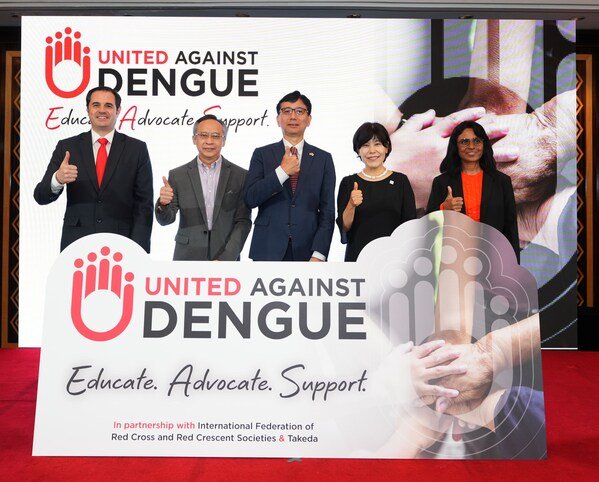
With dengue cases rapidly rising across Asia due to climate change, urbanization, and population growth, the launch of the "United Against Dengue" (UAD) initiative marks a critical step in enhancing regional preparedness. Spearheaded by the International Federation of Red Cross and Red Crescent Societies (IFRC) Asia Pacific and Takeda, this multi-year collaboration aims to elevate dengue education, strengthen policy advocacy, and provide support to affected communities. Timed with ASEAN Dengue Day, UAD reflects a unified, region-wide response to one of Asia’s most pressing public health challenges.
At the heart of the initiative lies a three-pillar strategy: Educate, Advocate, and Support. UAD plans to implement impactful community education programs, train volunteers, improve early action capabilities, and promote hygiene practices. Through partnerships with policymakers, medical societies, and NGOs, UAD also aims to ensure sustainable prevention measures are integrated into national health strategies. Additionally, community care and outreach programs will directly assist individuals affected by dengue, reinforcing long-term resilience and capacity.
Ultimately, UAD represents a collaborative call to action that transcends borders and sectors. By combining public health expertise, strategic advocacy, and grassroots engagement, the initiative sets out to significantly reduce preventable dengue deaths and empower communities with the tools and knowledge they need to fight the disease. As a model for regional collaboration, UAD has the potential to drive measurable improvements in dengue prevention and management across Asia and beyond.
MedTech Spectrum's Summary
Strategic Regional Collaboration: The IFRC-Takeda-led "United Against Dengue" initiative unites NGOs, governments, and communities across Asia to address the rising dengue threat through a structured focus on education, advocacy, and support.
Community Empowerment & Policy Impact: By enhancing disease literacy, training local health responders, and aligning with national strategies, the initiative strengthens both grassroots and systemic responses to dengue.
Goal-Oriented Action: With a target of achieving zero preventable dengue deaths by 2030, the program highlights the power of multi-sector collaboration to deliver sustainable, region-wide health improvements.